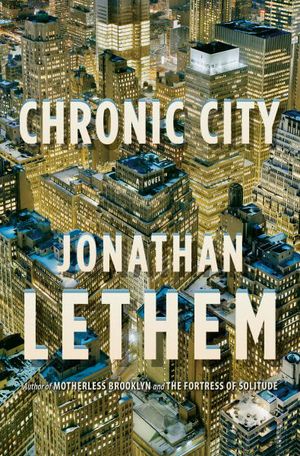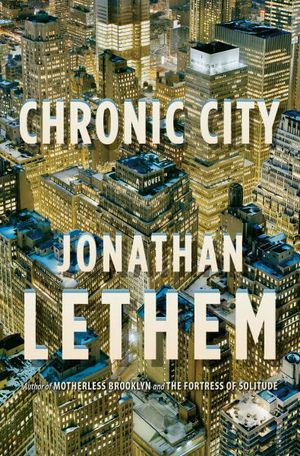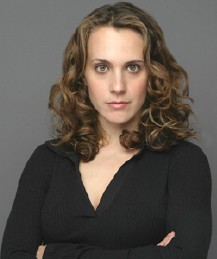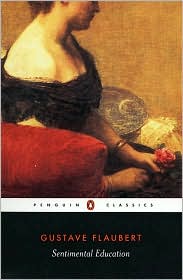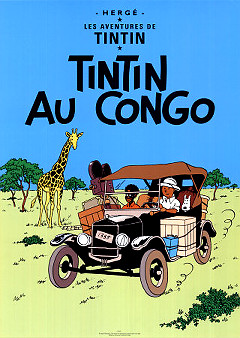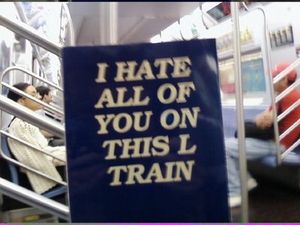Here's my review/think piece on Amy Sohn's new novel, Prospect Park West in this week's Brooklyn Paper.
Another Slope Swipe From Amy Sohn
So, can Park Slopers take a joke?
Absolutely.
And that’s the problem with “Prospect Park West,” Amy Sohn’s just
released satiric fiction about four clichés, er, mothers, whose lives
go into freefall during a long, hot summer in Park Slope.
The characters in the book are so busy being Gawker archetypes —
celebrity mom, sexy bad mom, former lesbian mom, frumpy supermom — that
they never take the time to laugh at themselves or make real
connections with each other.
And Park Slope is about making connections. You can’t step off your
stoop without having a conversation with a neighbor, a friend, a local
politician or a stranger.
Sohn, who used to pen a racy — and notorious — sex column in the NY
Press, also wrote for the NY Post where she once famously ogled the
penis sizes of various local baseball players. As the de-facto anti-Mom
of Park Slope, she aroused plenty of ire in her New York Magazine
“Mating” column when she wrote:
“Here in my neighborhood, Park Slope, I am constantly encountering
insane stay-at-home moms. And I have come to the all-too-un-PC
conclusion that stay-at-home motherhood, despite the way our culture
lionizes it, is bad for the child and bad for the mom. And bad for
society. It’s just plain bad.”
Sohn went on to say that most of the SAHMs she knows are really
miserable in a “neurotic, soul crippling, Zoloft-inducing, Yellow
Wallpaper-type way.” She also said that they have no opinions and spend
their time “talking about poop and pancakes with kale and Veggie Bootie
and natural Cheerios versus regular ones.” Nice.
Most shockingly Sohn recommended that college-educated women outsource their childcare:
“Childcare should be the province of immigrant women trying to get a
leg up. I do not believe it is ‘better for the child’ to be with his
mother. I believe it is better for the child to have a mother with some
modicum of a life — whether it’s volunteering, graduate degree, or
part-time work.”
So it should come as no surprise that Sohn’s fictional characters
are so similar to her public persona, isolated and angry and defining
themselves by choices they make about their clothing, their marriages,
their parenting styles and their careers.
It’s Park Slope as seen from a blog, not a stoop. And it feels like
a sexist war zone where what you wear to shop at Met Food or which
stroller you buy is referendum on your worth as a human being.
While the novel is full of jokes at the expense of Park Slope moms,
who are savaged by Sohn for being fat, ugly and uninteresting, the book
rarely shows anyone having fun or being self-aware.
And speaking of self-awareness, there actually is a culture of self-criticism
and satire within Park Slope that is alive and well — and completely
left out of Sohn’s book. How convenient.
What about Edgy Mother’s Day, an annual literary reading featuring
local authors like Mary Morris, Sophia Romero, Jenny Offili, Jill
Eisenstadt and, yes, Amy Sohn reading stories about motherhood without
sanctimony?
How about satiric bloggers like Blog Nigger and F—ked in Park Slope, the blog with the motto, “Embrace the hate”?
People in Park Slope do, in fact, laugh at themselves and think it’s
ridiculous that strollers cost $700. They actually make fun of the Tea
Lounge, the Food Co-op and all the other people, places and things
mentioned in the book. When the novel works well, it does so because
Sohn grounds it in an up-to-date Park Slope landscape.
But what about the places and activities that Sohn doesn’t mention —
places that really make Park Slope tick — like the Community Bookstore,
Old First Church and Snice; the various book, running, bike and writing
groups; the community board, Civic Council and political clubs; cool
musical venues like Barbes and Issue Project Room; and essential local
landmarks like the Botanic Garden and the Brooklyn Museum?
Amy Sohn’s “Prospect Park West” isn’t the eastern strip of the real
Park Slope because her characters lack a sense of humor about
themselves and a meaningful connection to their community.
Which isn’t to say that there’s not a lot to satirize about this neighborhood.
Plenty of us are annoyingly obsessed with real estate and celebrity culture.
Many of us watch the sex go out of our marriages as we devote
ourselves too vigorously to our children, our jobs and the logistics of
our daily lives.
Some of us exhibit strange — and exasperating — parenting habits,
like talking incessantly to our children or letting them sleep in our
beds until they’re 5.
Yes, Sohn does a good job of satirizing the Food Co-op, a certain
strata of frumpy mom, and even the fishbowl culture of Park Slope that
sometimes resembles a very small town.
She uses the Park Slope Parents Web site as a great narrative device
when Lizzie discovers a post about a couple looking for neighborhood
swingers — an actual post from a few years back. In the book, the
response on the list-serv is pretty Puritanical, though, in reality,
members had a lot of fun with it.
I also appreciate that Sohn puts to bed the sexist notion that
sexless marriages are always a woman’s fault. Probably the biggest
insight in the book is that men, after fatherhood, become less
interested in sex. And it’s not because their wives are a turnoff — but
because the pressures they face at work and home are a buzz kill.
“Rebecca saw what she’d been doing wrong all the time: She had been
trying to go through the front door when he wanted to be approached
from the side. He needed to be approached through the door marked
‘Father’ because the one marked ‘Husband’ was locked.”
But there are also lines in the book that really cross the line,
like the one about “adoption being the ultimate form of recycling.”
And while there aren't a lot of Park Slope mommies who dress like Angelina Jolie when they go to the playground, the women around here are as beautiful as anyplace else. I am, in fact, astounded at how many beautiful mothers there are in Park Slope. (note: this graph was left out of the article int he BP).
The real-life Park Slope just isn’t so mean spirited—and ugly—as Sohn’s.
Where’s the warmth and community spirit of moms like Susan Fox and
Rachel Mauer, who run Park Slope Parents and Kim Maier, executive
director of the Old Stone House?
How about dedicated community leaders like PS 321’s principal Liz
Phillips, Bobby Finkelstein, who runs the after-school program at Beth
Elohim and Nancy Romer, organizer of the Brooklyn Food Conference?
Or glamorous moms like author Elissa Schappell, who writes the Hot
Type column for Vanity Fair; Suzanne Donaldson, photo editor of Glamour
Magazine and Kathy Malone, founder of the Brooklyn Indie Market.
This Prospect Park West is made up of really interesting women, with a wide range of interests, passions and styles.
But the other “Prospect Park West” is too busy wanting to be the hit
show, “Sexless and the City” or “Actually Very Desperate Housewives”
rather than be a true mirror on a neighborhood that is still dying for
a real fictive takedown.
In “Prospect Park West,” the characters are at each other’s throats
and are only looking out for number one. In other words, they lack a
connection to community and the sense of how they affect the world
around them.



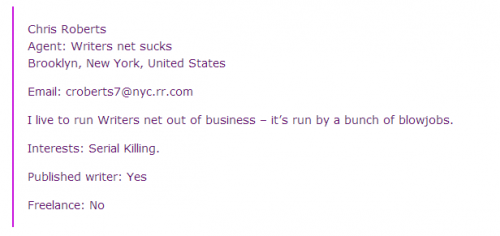
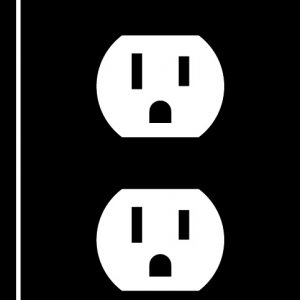
![Reader-invite-cover[4][6] Reader-invite-cover[4][6]](http://onlytheblogknowsbrooklyn.com/pictures/6a00d8341c5fb353ef0120a6227259970b-300wi.jpg)
